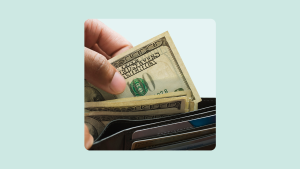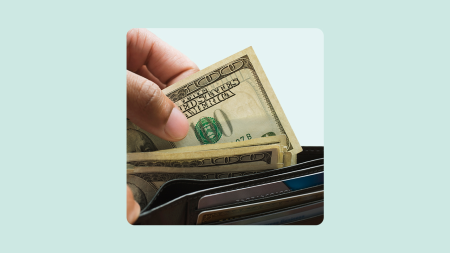Key takeaways
- You could save interest and free up room in your budget by paying your auto loan off early.
- There are several options available — including refinancing, paying biweekly and rounding up payments, just to name a few.
- Confirm your lender doesn’t charge a prepayment penalty since the cost could be more than what you save.
Learning how to pay off your car loan faster is a good way to save money. It means less interest paid — and when you finish, you should have a few extra hundred dollars in your budget each month.
There are a few tactics you can use, and most of them involve prioritizing extra payments toward your loan. However, paying off your car loan early could put you in a worse financial position if you aren’t mindful of your approach.
7 ways to pay off your car loan faster
Your best course of action will be to vary your approach when paying off your car loan ahead of schedule. You can calculate your early payoff savings, and once you have a solid idea of your goal, you can take advantage of a few methods to reach the finish line sooner.
1. Refinance with a new lender
The auto loan refinancing process involves swapping out your current auto loan for a new lender, preferably with more competitive terms. If approved, the lender will pay off your current loan, and you’ll start making payments on your new loan.
Refinancing can be an easy way to pay your car loan off faster. If you opt for a shorter loan term, you may be able to keep the same monthly payment — provided you qualify for a lower auto loan rate. Even if you don’t make extra payments or round your payments up, you will naturally pay off your car loan faster.
2. Make biweekly payments
Although it may not seem like much, paying twice a month rather than just once will get you to the finish line faster. It will also help save on auto loan interest. This is because interest will have less time to accrue before you make a payment — and because you will consistently lower your total loan balance.
By the end of one year of making biweekly payments, you will have made the equivalent of 13 payments on your loan instead of just 12, which helps reduce the principal on your debt even faster. It helps move you toward an early payoff date without significantly increasing the amount you put toward your loan each month.
To illustrate, here’s how the numbers would look on a four-year $48,000 auto loan with an interest rate of 7.8 percent:
| Biweekly payments | Monthly payments | |
|---|---|---|
| Payment amount | $583 | $1,167 |
| Interest paid | $7,173 | $8,031 |
| Time to payoff | 40 months | 48 months |
By opting for biweekly payments, you will save $858 over the course of your loan — and cut eight months off your repayment schedule.
3. Round your payments to the nearest hundred
Similarly, rounding up your payments will have a small impact month-to-month but a substantial change overall. By rounding up to the nearest hundred, or at least the nearest whole number, you will slowly reduce the principal of your car loan. You will also get ahead of schedule, which will ease you into a faster payoff.
Using the same example, this is how rounding your payments up or adding $100 toward your payment will affect your auto loan:
| Monthly payment | Monthly payment rounded | Monthly payment + $100 | |
|---|---|---|---|
| Total monthly payment | $1,167 | $1,200 | $1,267 |
| Interest paid | $8,031 | $7,767 | $7,281 |
| Total savings | – | $264 | $750 |
| Time to payoff | 48 months | 47 months | 44 months |
4. Opt out of unnecessary add-ons
If you added optional protection like gap insurance, an extended warranty or a service contract to your loan, contact your provider and cancel. You should receive a prorated refund for the remainder — and if you financed these add-ons with your loan, you may also reduce your monthly payment.
Rather than putting that refund into your pocket, apply it to your loan. This way, you’ll owe less overall and benefit from a lump sum payment.
5. Make a large additional payment
Tax returns, bonuses and other large lumps of cash or financial windfalls can go to your car loan. Any time you can reduce your principal by a few hundred dollars, it’s likely worth doing.
Similar to rounding your payments and paying biweekly, a lump sum payment will prevent interest from adding up. As your loan balance decreases, more of your payment will go toward the principal, leading to an early payoff.
6. Pay each month
Even if you are ahead of schedule, you should still pay your loan every month. This will keep interest from accruing — which means more goes toward principal, further reducing the interest you pay. Maintaining regular payments when they aren’t required will also lead to paying off your car loan early.
7. Take advantage of lender discounts
It’s worth contacting your lender to ask about an autopay discount. Some offer a slight reduction in the ARP, typically around 0.25 percent, when you schedule your payments for automatic withdrawal.
Not every lender has this option, so it’s worth contacting yours to see if it is available. It may not seem like a huge impact, but even a small discount can save you money — and help you pay your loan off faster — over time.
Should you pay off your car loan faster?
Paying off your car loan early means an extra few hundred dollars in your pocket each month. However, it’s not always the right move for your finances.
When you should consider paying off your car loan early
Paying off your car loan early means an extra few hundred dollars in your pocket each month. Here’s when it could make financial sense:
- You want to reduce your debt: Even if you can comfortably afford your auto loan payments, you may have your sights set on reducing your overall debt. In this case, paying off your car loan can get you one step closer to your goal.
- Your interest rate is steep: You can save money in interest by paying off your car loan early, especially if you started out with a higher rate. The same applies if you have a variable interest rate and market rates are trending upward, which means you’ll likely see higher borrowing costs soon.
- You have access to extra cash: If an unexpected influx of cash comes your way, consider using it to pay down the principal balance so you can own your car loan off sooner. You’ll create wiggle room in your budget, and you can start to save again by allocating the funds you free up in your budget to your savings.
When you may not want to pay off your car loan early
In some cases, you could negatively impact your finances more than help. So repaying your auto loan early may not be the best move, especially in these cases:
- There is a prepayment penalty: A prepayment penalty is the lender’s attempt to make up for the interest you would have paid if you had stayed on schedule. If there is a prepayment penalty, make sure it won’t cost you more than you would otherwise pay in interest.
- Your loan uses precomputed interest: Precomputed interest front-loads the interest so that you pay more interest at the start of your loan. When you pay off your car loan early, you won’t significantly lower the cost. In this case, it may be better to stick to the loan schedule.
- You don’t have much debt: While it may seem counterintuitive, your credit score is calculated based on the types of debt you have and the length of your accounts. Since car loans are long-term debt, making consistent payments for years will help keep your credit score high.
Bankrate tip
Paying off your loan may lower your credit utilization ratio, which accounts for around 30 percent of your credit score. If you have other debts and a high debt-to-income ratio (DTI), removing one account should help improve your score.
The bottom line
Once you understand how to pay off a car loan early, it’s important to consider whether doing so is the best decision. If you’d face prepayment penalties or a potential hit to your credit score, the savings won’t be worth it.
But if you want to get out of debt, eliminating car payments is one of the quickest ways to make room in your budget. Refinancing — or just making extra payments — are the best ways to pay off your car loan faster. Even if it’s just a few extra dollars, you will reduce your debt and may cut a few months out of your loan.
Read the full article here
















